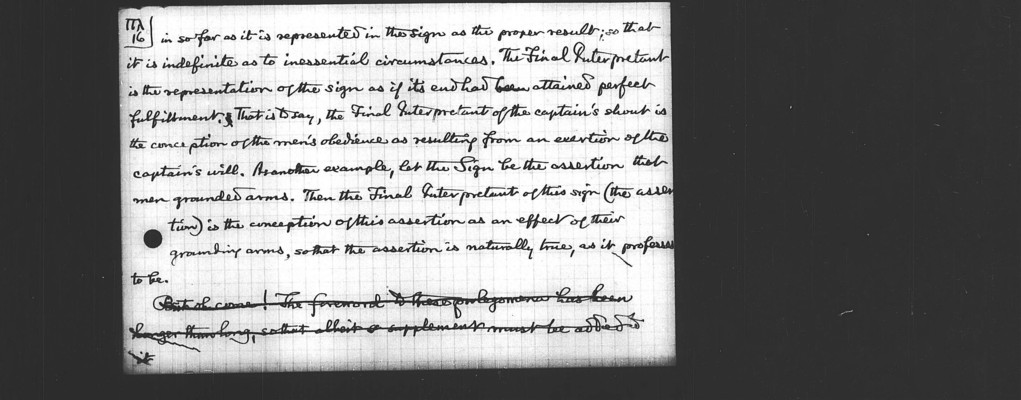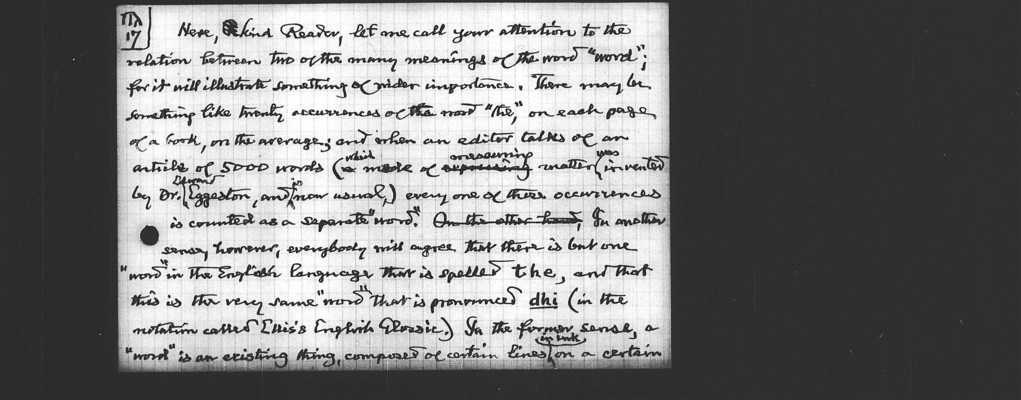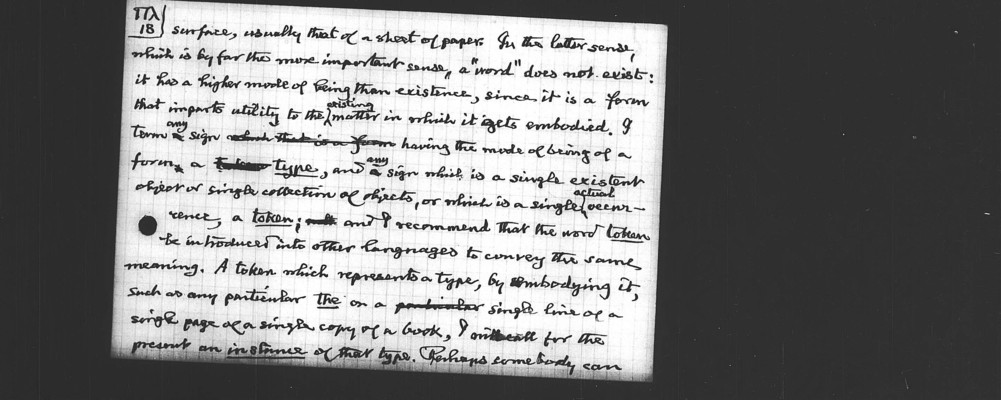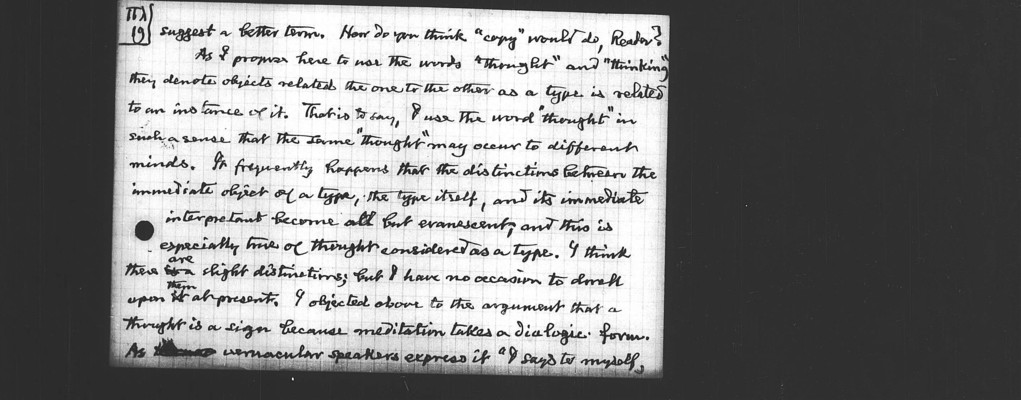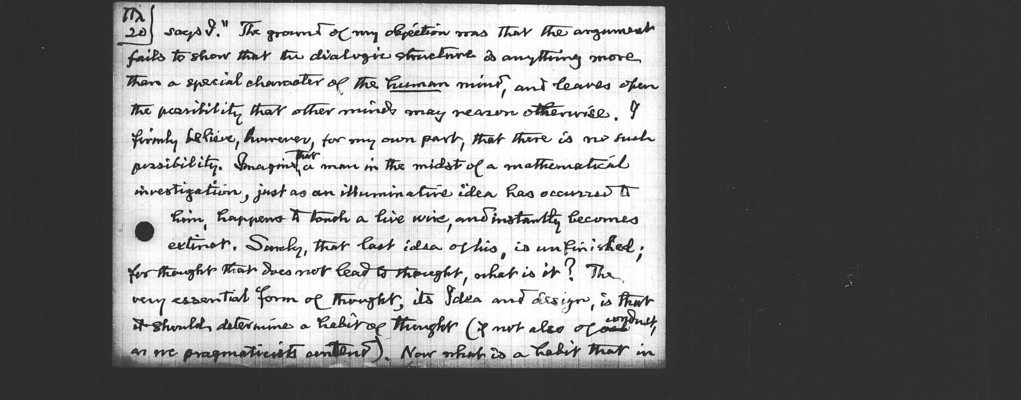Pages
16
πλ 16
in so far as it is represented in the sign as the proper result; so that it is indefinite as to inessential circumstances. The Final Interpretant is the representation of the sign as if its end had attained perfect fulfillment. That is to say, the Final Interpretant of the captain's shout is the conception of the men's obedience as resulting from an exertion of the captain's will. As another example, let the Sign be the assertion that men grounded arms. Then the Final Interpretant of this sign (the assertion) is the conception of this assertion as an effect of their groudning arms, so that the assertion is naturally true, as it professes to be.
17
πλ 17
Here, kind Reader, let me call your attention to the relation between two of the many meanings of the word "word"; for it will illustrate something of wider importance. There may be something like twenty occurrences of the word "the," on each page of a book, on the average; and when an editor talks of an article of 5000 words (which mode of [answering?] matter was invented by Dr. Edmond Eggeston, and is now usual) every one of these occurrences is counted as a separate "word." In another sense, however, everybody will agree that there is but one "word" in the English langauge that is spelled THE, and that this is the very same "word" that is pronounced dhi (in the notation called [Luis's?] English Classic.) In the former sense, a "word" is an existing thing, composed of certain line in ink on a certain
18
πλ 18
surface, usually that of a sheet of paper. In the latter sense, which is by far the more important sense, a "word" does not exist: it has a higher mode of being than existence, since it is a form that imparts utility to the existing matter in which it gets embodied. I term any sign having the mode of being of a form, a type, and any sign which is a single existent object or single collection of objects, or which is a single actual occurrence, a token; and I recommend that the word token be introduced into other languages to convey the same meaning. A token which represents a type, by embodying it, such as any particular the on a single line of a single page of a single copy of a book, I will call for the present an instance of their type. Perhaps somebody can
19
πλ 19
suggest a better term. How do you think "copy" would do, Reader?
As I propose here to use the words "thought" and "thinking" they denote objects related the one to the other as a type is related to an instance of it. That is to say, I use the word "thought" in such a sense that the same "thought" may occur to different minds. It frequently happens that the distintions between the immediate object of a type, the type itself, and its immediate interpretant become all but evanescent, and this is especially true of thoughts considered as a type. I think there are slight distinctions; but I have no occasion to touch upon them at present. I objected above to the argument that a thought is a sign because meditation takes a dialogic form. As vernacular speakers express it "I says to myself,
20
πλ 20
says I." The ground of my objection was that the argument fails to show that the dialogic structure is anything more than a special character of the human mind, and leaves open the possibility that other minds may reason otherwise. I firmly believe, however, for my own part, that there is no such possibility. Imagine that a man in the midst of a mathematical investigation, just as an illuminative idea has occurred to him, happens to touch a live wire, and instantly becomes extinct. Surely, that last idea of his is unfinished; for thought that does not lead to thought, what is it? The very essential form of thought, its Idea and design, is that it should determine a habit of thought (if not also of conduct, as we pragmatists contend). Now what is a habit that in
